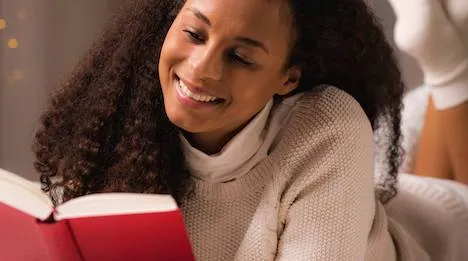
Romance Novels Are For Feminists
For reasons I no longer remember, a couple of years ago I decided that I would go to the gym for 100 days in a row. It was an ambitious undertaking, but it also quickly became an expensive one, as I was relying on magazines to get me through 45 boring minutes on the elliptical machine. Buying a week’s worth of magazines is not cheap, and since I value my ability to pay rent at least as much as my health, I turned to “Nook Books Under $5” for an alternative.
As a brief aside, since this story is about my discovery of romance novels, I suppose I should tell you (in the interest of not being immediately dismissed by book snobs) that I’ve been a book person my whole life. I read a lot. I read fiction and non-fiction. I’ve read YA and memoirs and graphic novels. I’ve read bestsellers and National Book Awards winners and books I’d never heard of that caught my eye in a book store. And that’s just in the last few months.
But this story isn’t about those books. It’s a story about me getting over my prejudices and expanding my bookshelves to make room for romance novels.
So back to 2014.
Of course, there are many non-romance books in the cheap e-book world, but I needed something to distract me from the mind-numbing work of exercise. I downloaded a few cheap but highly-rated romance novels, and I prepared for cheesy banter and contrived plots at which I could roll my eyes while working off my mid-afternoon Oreos.
Only, a funny thing happened on the way to completing the “Hill Plus” cardio setting. As I read, I started to realize that a lot of what I thought I knew about romance was wildly inaccurate. Looking back, that makes sense, since all of what I “knew” was based on stigma and stereotype. I expected flowery writing. I expected damsels in all kinds of distress and swashbuckling, misogynistic heroes standing at the ready to rescue and subsequently seduce them. I’m a feminist, and I expected to find the kind of fiction that makes gender roles in mainstream film and television look positively progressive.
I was wrong. Very wrong.
The authors I was reading were excellent storytellers, and the books I bought were engaging and mostly well written. Romance writers are, in fact, writers, and it turns out you can’t be competitive in a billion dollar industry by trading in tired tropes.
But the thing that has made me a romance evangelist for the last two years is that romance is one of the most feminist sectors you can find in all of art and entertainment. That statement defies all of the stereotypes, but it’s true. In a world where men direct the majority of movies, host the majority of late night shows, and win the majority of prestige book awards, romance is the only realm I can find that is entirely and unapologetically dominated by women. Of course there are exceptions (welcome ones in cases like non-heterosexual romance), but by and large these are talented women writing about independent and interesting women for a vociferous reader base of – you guessed it – mostly women. If you spend about 5 minutes in the romance corner of Twitter, you’ll also find that best-selling romance authors are some of the most vocal advocates out there for women and the causes that impact us.
I’ve been book person since before I could read, and so I know from experience that we do an awfully good job of scoffing at love stories. In the last couple of years I’ve started to wonder why. Why would we assume that a romantic story can’t empower women? Why do we so easily dismiss books that end happily for strong women who know what they want?
Just like science fiction or poetry or graphic novels, romance isn’t for everyone, and that’s OK. But there are few other areas of entertainment that are so quickly dismissed and that are done as much of a disservice by stereotypes as romance. It’s concerning when we rely on assumptions about things with which we have no experience. We should pay special attention in cases when the targets of our suppositions so specifically feature the work and interests of a specific group of people.
Since downloading my first romance novel, I’ve become a more open-minded reader. I’m more aware of my prejudices around entertainment media generally. I did make it to 100 consecutive days at the gym, and I still go a couple of times a week. The difference is that now I never go there (or really anywhere) without an e-reader full of romance novels.










